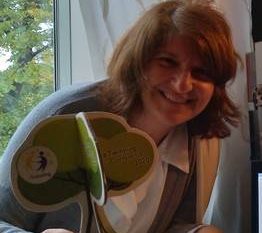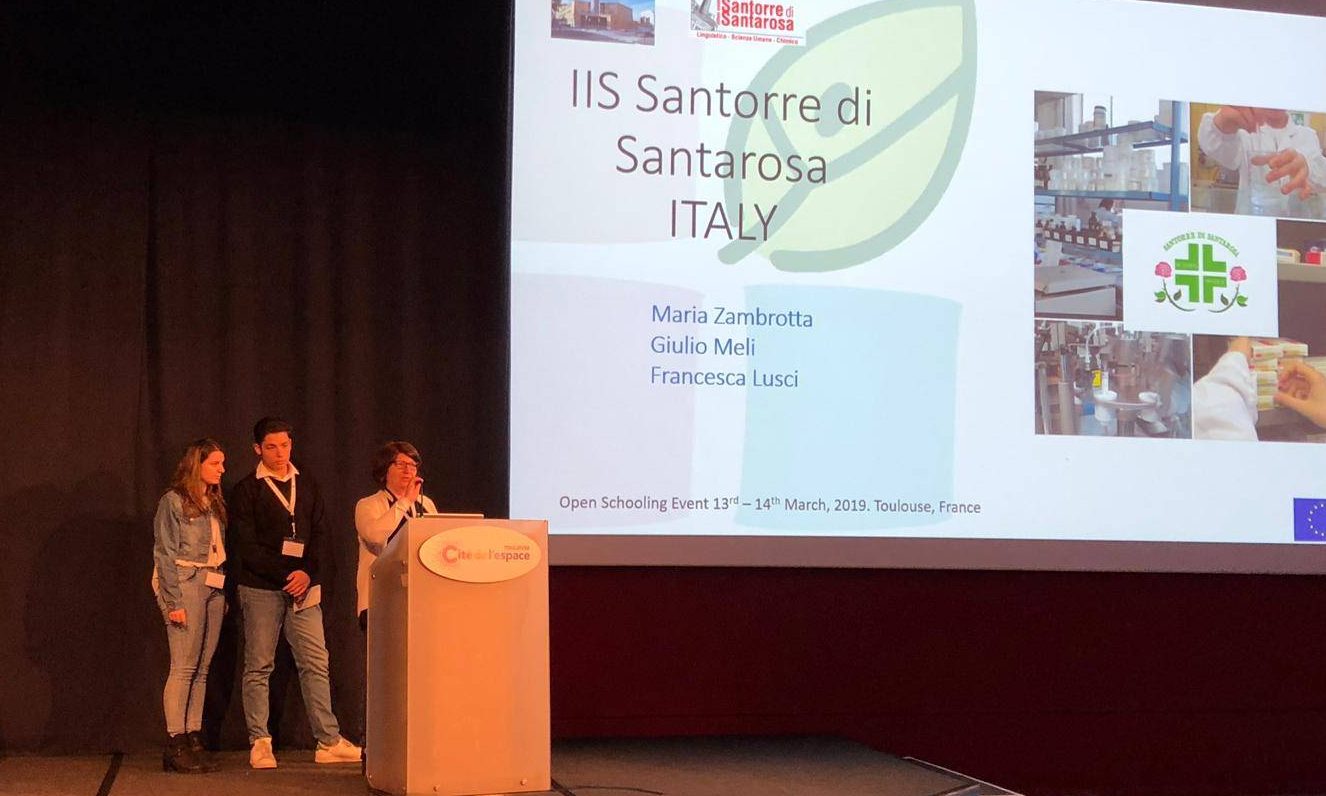indireinforma
Global Teacher Award: the teacher Maria Zambrotta, winner of the prestigious award, speaks to us

 We wanted to chat with Maria Zambrotta, eTwinner and chemistry teacher at the “Santorre di Santarosa” Institute in Turin, one of the winners in the latest edition of the Global Teacher Award, one of the most prestigious awards for teachers in the world.
We wanted to chat with Maria Zambrotta, eTwinner and chemistry teacher at the “Santorre di Santarosa” Institute in Turin, one of the winners in the latest edition of the Global Teacher Award, one of the most prestigious awards for teachers in the world.
The award, established annually by the Indian research and training centre Alert Knowledge Service (AKS), aims to identify those teachers who, in every part of the world, have demonstrated excellence in teaching different subjects, providing an exceptional support to students and the local community, even outside the school.
Hi Maria, and many compliments from all our staff. Can you tell us about your experience as a teacher and, in particular, about your inception as an eTwinner?
It all started in 2011 thanks to my head teacher at the time who recommended me to participate in a European project managed by European Schoolnet. It was the Ingenious project: a wonderful experience that allowed me to start changing my vision of teaching, visiting many schools around Europe and meeting many colleagues to collaborate with. The passion for the dissemination of science and the desire to share my work then made me decide to become a Scientix Ambassador. I subsequently participated in other European projects, as part of a school or as a teacher, and thanks to this activity I met a colleague and eTwinning Ambassador who introduced me to the world of this community. After a few unsuccessful attempts, I was lucky enough to meet a Spanish colleague who wisely guided me in the realization of the “Europe Experiments with Chemistry” project, which obtained the Italian and European Quality Label as well as the Special Mention at the 2019 National Awards. Always with eTwinning we are also developing a project called “BIPS: Bio-based products for the sustainability”, relating to the reuse of materials and carried out in collaboration with a Greek school, which will be presented in March 2022 at the Science on Stage Festival in Prague.
As far as your professional growth and this good result obtained for the Global Teacher Award are concerned, do you think that the experiences of international exchange may have partly contributed to the development of your teaching skills?
Yes of course. International projects such as eTwinning are very useful, as they allow continuous collaboration, sharing of working time, documentation of results and, above all, increase in motivation, self-esteem and learning results. Innovation in teaching can be slow but brings great satisfaction. Over the years I have realized how training and exchange opportunities are very dear to students, but still very little known among teachers. Many teachers want to improve and compare with others, but often do not do so for fear of excessive bureaucracy, difficulties with the English language, and problems with the use of information technology. Not trying is undoubtedly a mistake, generally dictated by the effort of getting involved and getting out of one’s “comfort zone”. Once you have overcome the first obstacle, everything changes. Forever.
And what changes for the students?
Much changes, also and mainly for them. First of all, the eTwinning exchange facilitates the development of an active role in the construction of learning by children and the enthusiasm in being personally involved in the definition of the phases of a work project, even in non-formal teaching experiences. The contact with other schools in Italy and abroad also favours a multicultural and international dimension of teaching, now more fundamental than ever.
With reference to your school context, we conclude with an international exchange project that is particularly close to your heart.
In 2018, I proposed to my school to undertake the Erasmus+ adventure, because I was convinced of the need to offer my students and my colleagues the opportunities for cultural stimulation and professional growth that I had been able to experience myself during the years spent developing my various European projects. We therefore hosted Polish and Spanish colleagues in job-shadowing and the comparison with them motivated us a lot. Only one more element was missing: joining a strategic partnership between schools to allow the exchange of good practices between teachers and students. We have done this since 2019 and now we have 3 Erasmus KA229 mobility projects active. But this is just the beginning!
We really hope so. Good luck and all the best for your work. And congratulations once more!
Thanks!

